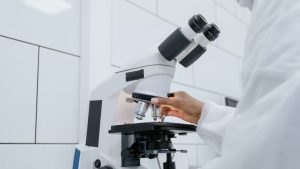In the dynamic landscape of biotechnology, the integration of machine learning is heralding a transformative era that promises to reshape our understanding of living matter and revolutionize the way we manipulate it. The next two decades are poised to witness a profound multidisciplinary and data-intensive approach to life sciences, propelling us towards remarkable advancements. Waiting on the sidelines is not an option, as the lack of data sophistication threatens to widen the gap between traditional biotech and data-driven startups.
Historically, data collection challenges, information silos, and a biology-first mindset have hindered biotech's evolution towards adopting modern technology. To scale and cost-effectively address complex system-level challenges, biotech must embrace machine learning. Enterprises that fail to grasp this shift risk falling behind agile, data-driven competitors.
The growing tide of uncategorized and fragmented data in biotech underscores the urgency of contemporary data techniques. With the biological sciences set to generate exabytes of data, conventional methods of analysis fall short. Herein lies the power of machine learning: it can unravel insights from experiments that extend beyond their original scope. Hypothesis-free experiments, aided by machine learning, pave the way for unforeseen scientific breakthroughs, leveraging the wealth of historical experimentation data.
Cost and scalability are critical concerns for biotech endeavors, whether in de-extinction, personalized healthcare, or drug discovery. The integration of machine learning workflows and advanced data processing software into biological studies holds the key to addressing these challenges. This approach not only saves costs but also empowers researchers to explore fundamental relationships within biotech data, fostering innovation and discovery.
Promising initiatives like Nvidia's BioNeMo Large Language Model (LLM) demonstrate the software sector's support for biotech's transformation. This collaboration has already yielded remarkable results, as exemplified by the creation of the Prot-VAE protein discovery model. These developments underscore the potential of machine learning to drive biotech forward.
Several practical applications illustrate the immediate benefits of machine learning in biotech. Innovations in genome editing, automation hardware for cell monitoring, and conservation field experiments highlight the vast potential at our disposal. These applications are not just cutting-edge solutions but practical ways to address key challenges faced by the industry.
To ensure a prosperous future, biotech leaders must prioritize the integration of mature data gathering and administration standards. Leveraging software industry best practices can expedite progress in the biological sciences. Failing to embrace this technology is not an option, as the pressing issues of disease, climate change, and health demand urgent solutions.
The time has come for biotechnology leaders to champion and invest in enterprise-wide machine learning solutions. This entails reshaping funding priorities, empowering cross-functional collaboration, and elevating computer scientists to influential roles within organizations. Only by creating collaborative learning environments and fostering technological adoption can biotech fulfill its potential over the next two decades.
In this pivotal moment, the marriage of biotechnology and machine learning offers a beacon of hope. The journey ahead requires courage, vision, and a commitment to embracing change. By doing so, we can bridge the gap between biological exploration and data-driven innovation, ensuring a brighter, more sustainable future for all.























